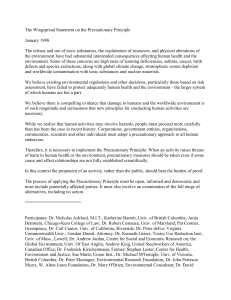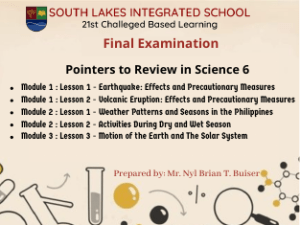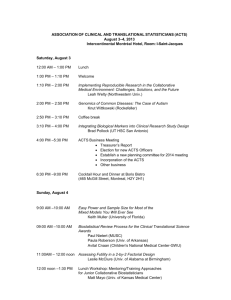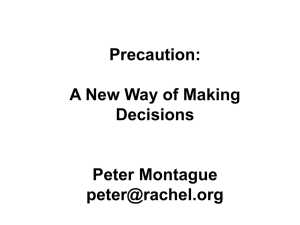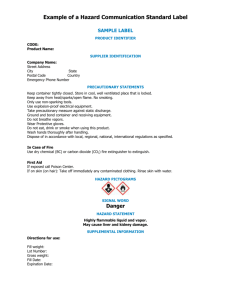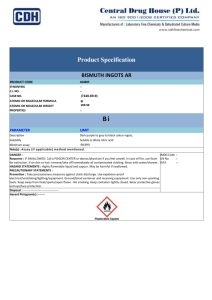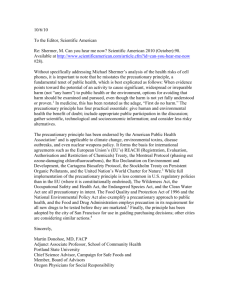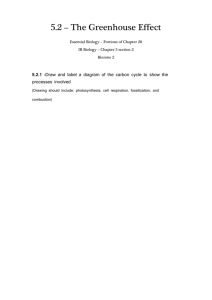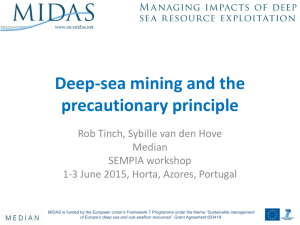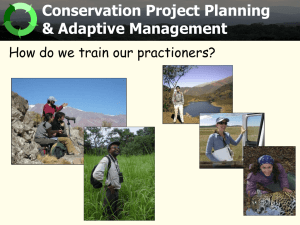Wingspread Statement on the Precautionary Principle
advertisement
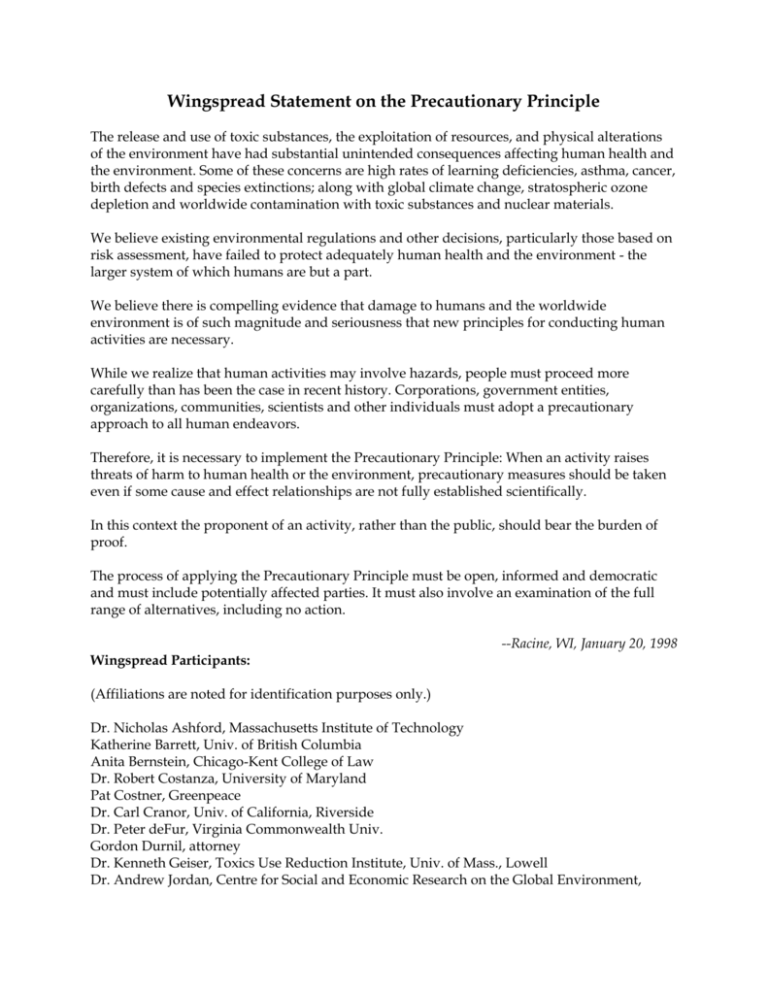
Wingspread Statement on the Precautionary Principle The release and use of toxic substances, the exploitation of resources, and physical alterations of the environment have had substantial unintended consequences affecting human health and the environment. Some of these concerns are high rates of learning deficiencies, asthma, cancer, birth defects and species extinctions; along with global climate change, stratospheric ozone depletion and worldwide contamination with toxic substances and nuclear materials. We believe existing environmental regulations and other decisions, particularly those based on risk assessment, have failed to protect adequately human health and the environment - the larger system of which humans are but a part. We believe there is compelling evidence that damage to humans and the worldwide environment is of such magnitude and seriousness that new principles for conducting human activities are necessary. While we realize that human activities may involve hazards, people must proceed more carefully than has been the case in recent history. Corporations, government entities, organizations, communities, scientists and other individuals must adopt a precautionary approach to all human endeavors. Therefore, it is necessary to implement the Precautionary Principle: When an activity raises threats of harm to human health or the environment, precautionary measures should be taken even if some cause and effect relationships are not fully established scientifically. In this context the proponent of an activity, rather than the public, should bear the burden of proof. The process of applying the Precautionary Principle must be open, informed and democratic and must include potentially affected parties. It must also involve an examination of the full range of alternatives, including no action. --Racine, WI, January 20, 1998 Wingspread Participants: (Affiliations are noted for identification purposes only.) Dr. Nicholas Ashford, Massachusetts Institute of Technology Katherine Barrett, Univ. of British Columbia Anita Bernstein, Chicago-Kent College of Law Dr. Robert Costanza, University of Maryland Pat Costner, Greenpeace Dr. Carl Cranor, Univ. of California, Riverside Dr. Peter deFur, Virginia Commonwealth Univ. Gordon Durnil, attorney Dr. Kenneth Geiser, Toxics Use Reduction Institute, Univ. of Mass., Lowell Dr. Andrew Jordan, Centre for Social and Economic Research on the Global Environment, Univ. Of East Anglia, United Kingdom Andrew King, United Steelworkers of America, Canadian Office, Toronto, Canada Dr. Frederick Kirschenmann, farmer Stephen Lester, Center for Health, Environment and Justice Sue Maret, Union Institute Dr. Michael M'Gonigle, University of Victoria, British Columbia, Canada Dr. Peter Montague, Environmental Research Foundation Dr. John Peterson Myers, W. Alton Jones Foundation Dr. Mary O'Brien, environmental consultant Dr. David Ozonoff, Boston University Carolyn Raffensperger, Science and Environmental Health Network Hon. Pamela Resor, Massachusetts House of Representatives Florence Robinson, Louisiana Environmental Network Dr. Ted Schettler, Physicians for Social Responsibility Ted Smith, Silicon Valley Toxics Coalition Dr. Klaus-Richard Sperling, Alfred-Wegener- Institut, Hamburg, Germany Dr. Sandra Steingraber, author Diane Takvorian, Environmental Health Coalition Joel Tickner, University of Mass., Lowell Dr. Konrad von Moltke, Dartmouth College Dr. Bo Wahlstrom, KEMI (National Chemical Inspectorate), Sweden Jackie Warledo, Indigenous Environmental Network
